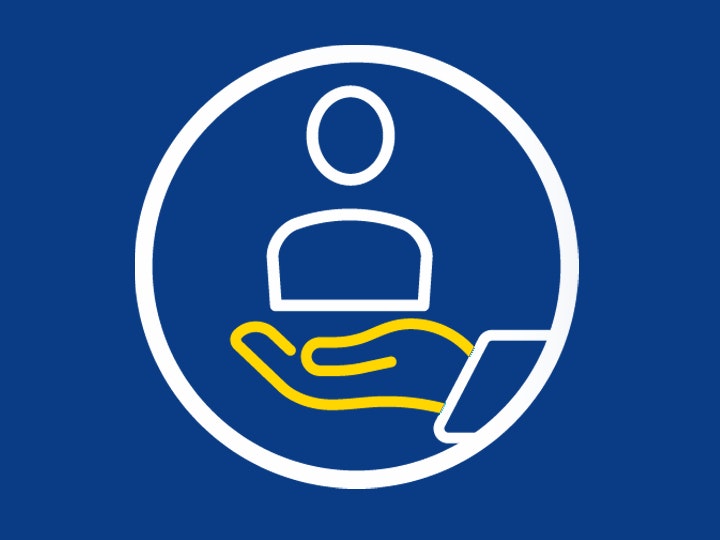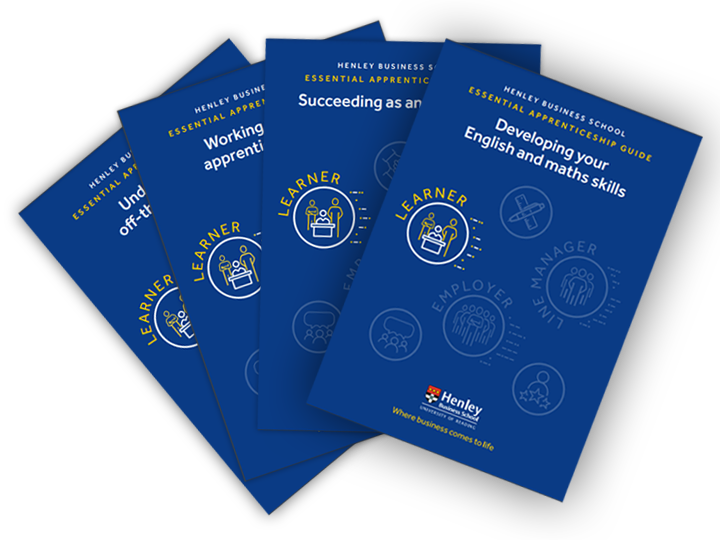Support for apprentices
Personal development is at the heart of our approach. We provide individual support to help apprentices and their employers achieve success.

How Henley supports you
A combination of tutors and learning coaches* will support you and your line manager throughout the programme.
Apprenticeship tutors*
Apprenticeship tutors support you and your line manager through the apprenticeship journey. You will meet regularly with your tutor, either within your workplace or virtually, to receive pastoral and learning support and to review and assess the evidence gathered for your portfolio.
Learning coaches*
Learning coaches provide regular guidance on how to implement your new knowledge in the workplace. Together with your line manager, they will support you in selecting the topics for your work-based project(s).
Personal development
We take a whole-person approach that acknowledges the complexity of balancing work, home and study. In addition to the high level of individual support you will receive while studying at Henley, you can also benefit from coaching, networking, mentoring, and support from our Careers team.
* May vary based on the programme.
“One advantage of the apprenticeship programme at Henley is you are assigned an apprenticeship tutor; our tutor is fantastic and really helps me navigate through the process and supports with identifying and submitting evidence.”Marc Bunce, Flexible Executive MBA, Senior Leader Master's Degree Apprenticeship
How your employer supports you
Line manager
We will engage with your line manager to ensure they understand the details of the programme and requirements for off-the-job training. Your line manager will guide you in selecting the topic for your work-based project(s), join meetings with your apprenticeship tutor, and, if required, allocate you a mentor.
Off-the-job training
You will spend a minimum of six hours per week (equivalent) of your time on off-the-job training. This is a mandatory component of an apprenticeship and is undertaken during your paid hours.
Off-the-job training is not exclusive to workshops and online study sessions. It also includes:
- Practical training: shadowing, mentoring and industry visits
- Chairing or attending meetings (outside your normal job function)
- Learning support and time spent writing assignments
- Meeting with your apprenticeship tutor
- Working on your evidence portfolio

Essential Apprenticeship Guides
To learn more about support for apprentices, see our Essential Apprenticeship Guides.
• Working with your apprenticeship tutor
• Understanding off-the-job training